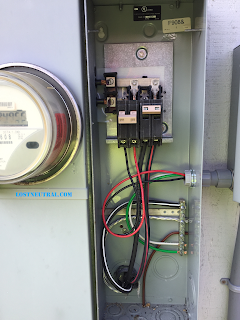I have spent years working on electrical systems in multiple
states, counties, cities and small towns. The most interesting thing is the
fact that they all follow the NEC, but the truth is that none of them interpret it the same and they all have their own specialty code or just have decided that they have certain installation methods they allow or don't allow regardless what the code says.
 |
| Residential solar production |
If you are a homeowner just doing work on your home then this isn't really problem most of the time. But if you are an electrician in the trade moving to another area or even another state to do electrical work, then you will need to find out what the latest electrical installation methods are and what the local inspectors like to see. I have found out the hard way that just because the code allows it, this doesn’t always mean that the inspectors will allow it.
 |
| Utility Interconnect for Solar |
 |
| Residential Solar Inverter |
For example, say you work primarily inland in the pacific northwest but you decided to go to any number of the little beach towns to replace an old service for your brother. You may be in for a surprise. You installed that new meter main on the house, but when the inspector comes to inspect your work they inform you that you can only use stainless steel service equipment. For some of you that may be common knowledge but for others you don’t know what you don’t know.
Save time and money by asking a few questions before you
purchase materials, equipment and start a project outside your knowledge area.
None of us know everything. I personally find that the electrical trade and just technology in general changes so rapidly that I feel like I’m always in a constant state of learning.










